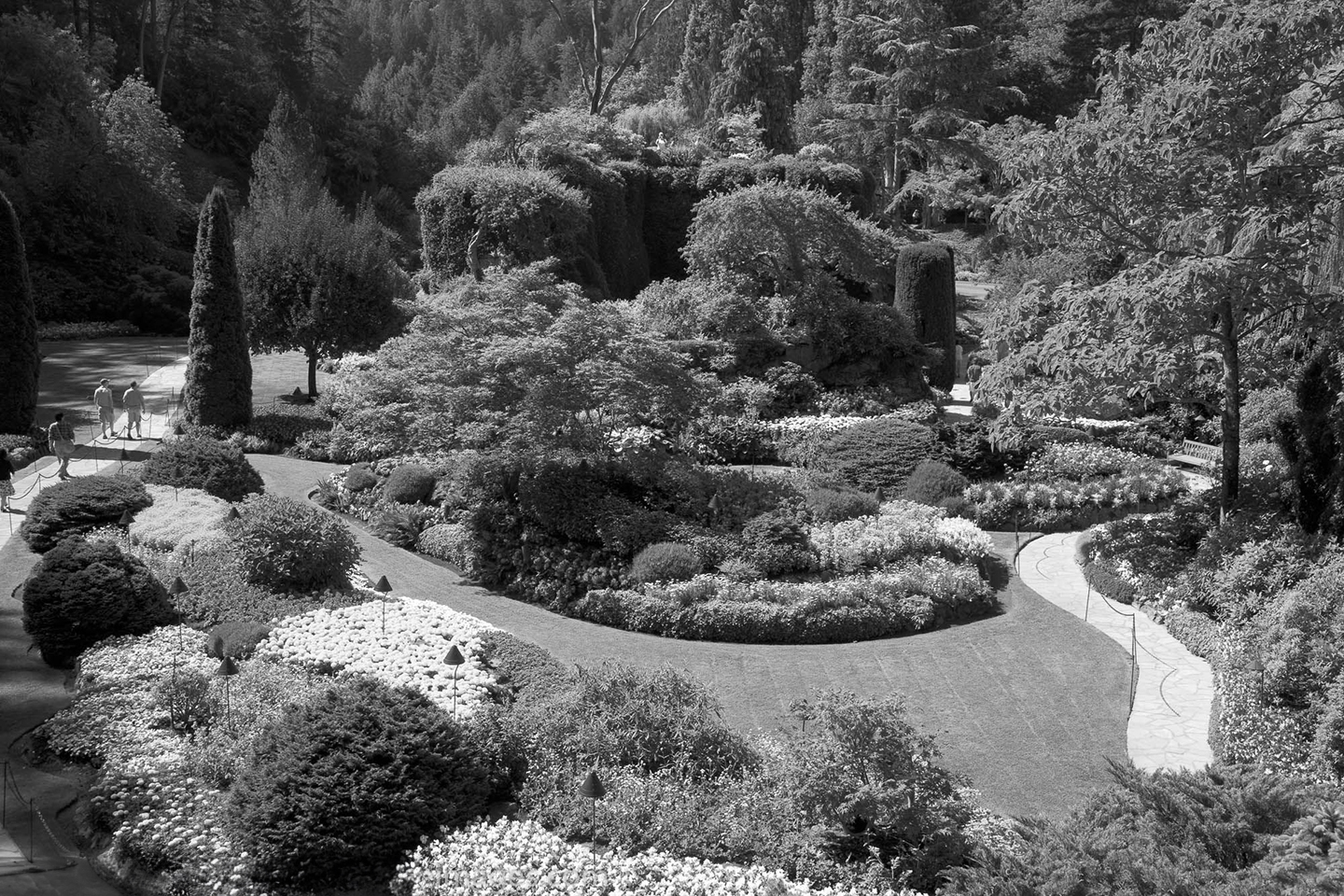Garden Path: Investor Plans Tourist Magnet for Land Parcel North of Arlington
Fort Worth Star-Telegram, January 3, 1993

By CHERYL PHILLIPS
ARLINGTON - A Nevada investor who paid cash for 2, 100 acres of woodlands, prairie and rolling hills along the Trinity River north of Arlington has bold dreams of building elaborate gardens and an amusement center that would draw upward of 3 million tourists a year.
Developer Jim Salim's firm paid more than $2 million for the land, and he says he has access to a multi-million-dollar trust fund. He has no history in Texas development, but his plans for converting the property into a tourist draw to rival Disney World's 25 million visitors a year have attracted the interest of City Hall, the chamber of commerce and the state highway department.
"I really do believe that ultimately we will outdraw Six Flags," said Salim, 48, by telephone from Reno last week. "Because we will be open 12 months out of the year and we will draw from every age group."
Salim said he is convinced that he can successfully use the acreage, a feat that has defied developers since the land-boom days of the early 1980s. His Metrovest Partners Ltd. bought the flood-prone property from the Resolution Trust Corp. in Tarrant County's largest land transaction of 1992.
Salim said he first plans to build what he calls the Arlington Gardens on 150 acres of the sprawling property roughly bounded by the Rail-tran tracks on the north, Farm Road 157 on the west, Riverside Club golf course on the east and the Trinity River on the south. He would build greenhouses for indoor plants and would raise indigenous trees, shrubs and flowers along winding outdoor paths. Next to the gardens, several wedding chapels would be available for rent.
The gardens would require an investment of $15 million to $18 million, Salim estimates. His investment group, which he said includes a partner with a large trust fund, would have to build enough greenhouses to protect large numbers of tropical plants, winter and summer.
He also expects to spend between $12 million and $15 million to protect about 1,000 acres from Trinity flooding during heavy spring rains.
After the gardens are built, Salim said, he will develop the rest of the project gradually, either through other investor groups or as he sells land parcels to entertainment companies.
Additional features could include a water park with lakes and jet ski rentals, an amusement park with rides, entertainment shows with fireworks and possibly a hotel, Salim said.
His dreams are ambitious but workable, said Gene Schrickel of the Arlington engineering firm of Schrickel & Rollins, Salim's landscape architect.
The gardens would be patterned after the Butchart Gardens, a tourist attraction in Victoria, Canada, that draws 750,000 people annually. It was after several visits to the Canadian attraction, Salim said, that he first considered building the gardens in Texas. This past fall, Salim sent Schrickel to tour the gardens and glean ideas.
"I wondered about it a little bit because of our heat and our cold." Schrickel said of the Arlington Gardens concept.
But since Salim approached him in September about developing Arlington Gardens, Schrickel has researched the possibilities. He has talked with horticulturists, has conferred with state officials on improving Farm Road 157 and has come to a conclusion: "I believe it can be done," he said.
But Salim and Metrovest Partners are virtually unknown in North Texas. And Salim is reluctant to discuss other business ventures, saying he prefers to focus on his plans in Arlington.
The gardens would represent his first entertainment venture. He has invested in land in Hawaii and has sold golf course property to a Japanese company in Maui. He also invests in stocks. he said.
But the tract of land that Salim sold in Maui several years ago for use as a golf course remains vacant. The owner, Japanese company Shinwa International, has no plans for it, said Greg Wong, vice president of Shinwa's golf course divi-sion.
Howard Nakamura, president of Weilea Resort and head of Shinwa's resort division, said there was some question about the availability of water. Also, the demand for golf courses in Hawaii is not high right now, Nakamura and Wong said.
Salim said he started looking in Texas after becoming convinced that the real estate market had bottomed out and that good deals were available.
According to one real estate broker with interests in Tarrant County, Salim has a good track record in past ventures. The broker declined to elaborate.
But Salim has something that tends to attract supporters: His partnership paid cash, more than $2 million for one chunk of land alone, and it plans to use more cash to develop it.
In September, Salim bought 1,854 acres along the Trinity for $2.25 million from the RTC. On Dec. 6, in an RTC auction, Salim bought an adjoining 241 acres in an effort to lock up surrounding properties. That sale will be complete—and the purchase price made public—early this month, the RTC says.
Central to Salim's plans for the garden paradise is persuading city and state officials to raise and widen Farm Road 157. The expansion would help remove the threat of flooding and handle predicted traffic increases.
Without the road work, the Arlington Gardens might have to be scratched and the land developed for office and industrial uses, which would not have the same income potential, Salim said.
"It's all going to be dictated by what happens to 157," Salim said. "...All of this is a pipe dream if 157 doesn't go through.
Mayor Richard Greene and Dean Dauley, the Arlington Chamber of Commerce's vice president of economic development, are working with local and area officials to spur development of Farm Road 157 as well as the city's extension of Stadium Drive north through the property.
Salim, meanwhile, has said that he would donate right of way for the road improvements, and Metrovest is paying for the hydrology study necessary to the road work.
The state has long had plans to improve Farm Road 157, one of the few major north-south roads through Arlington. But other road improvements were given higher priority. Salim is asking the state to accelerate work on the farm road because his plans could generate property and sales tax revenue for the city and state.
"If that property is considered to be a huge source of property taxes and sales taxes, people will push harder than if it's a big old huge piece of vacant land," he said.
Now that the property is owned by a private investor, plans to improve Farm Road 157 could speed up, said Billie Hardie, director of transportation, planning and development for the Fort Worth District of the Texas Department of Trans-portation.
"It will be nice to have someone to work with, and we can develop the roadway and he can develop his property," Hardie said.
City business leaders acknowledge that Salim's firm is untested in Texas, but they say they aren't doing anything for Metrovest that they wouldn't do for any major property owner.
"We're not vouching for Mr. Salim at all." Dauley said. "He bought the property, he's a new land owner and he's employed the engineering firm of Schrickel & Rollins to do a lot of the design work. ... We think he's got a good group to work with, and he certainly pays his bills properly."
And the ready cash increases his credibility, Greene said.
"The fact that he did pay cash for the land and one of the principal characteristics of this project is that he intends to not go into debt to do this, I think is quite impressive," Greene said.

